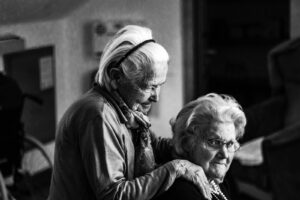National guidance on managing coronavirus in pregnancy
Guidance for healthcare professionals on managing coronavirus (COVID-19) infection in pregnancy has been published today by the Royal College of Obstetricians and Gynaecologist (RCOG).
The guidance covers the most up-to-date advice on how coronavirus affects pregnant women and their unborn babies, how labour and birth should be managed in women with suspected or confirmed coronavirus, as well as information on neonatal care and infant feeding.
The RCOG said pregnant women do not appear to be more susceptible to the consequences of coronavirus than the general population and there is no evidence that the virus can pass to a baby during pregnancy
As a precautionary approach, pregnant women with suspected or confirmed coronavirus when they go into labour are being advised to attend an obstetric unit for birth but their birth plan should be followed as closely as possible
It added that, at the moment, there is no evidence that the virus can be carried in breastmilk, so it is felt the benefits of breastfeeding outweigh any potential risks of transmission of coronavirus through breastmilk.
Dr Edward Morris, president of the Royal College of Obstetricians and Gynaecologists, said: ‘This guidance has been written to ensure maternity units across the country are providing consistent and safe care to pregnant women with suspected or confirmed coronavirus infection.
‘And to ensure that every effort is taken to minimise the potential spread of the infection to medical staff or other patients.
‘As this is a very new virus we are just beginning to learn about it, so the guidance will be kept under regular review as new evidence emerges.
‘Over the coming weeks and months it is likely pregnant women in the UK will test positive for coronavirus. While the data is currently limited it is reassuring that there is no evidence that the virus can pass to a baby during pregnancy.’
The guidance was created in partnership with Royal College of Midwives and Royal College of Paediatrics and Child Health, with input from the Royal College of Anaesthetists, Public Health England and Health Protection Scotland.
Professor Russell Viner, president of The Royal College of Paediatrics and Child Health, said there is currently no need to separate babies from the mothers.
‘The situation is now developing very quickly and this guidance is based on a thorough review of the evidence, limited though that is.
‘Based on current evidence, we don’t believe that babies born to women who test positive for coronavirus should be separated. The impact of this separation, even as a precaution, can be significant on both the baby and the mother.
‘We will review this recommendation as we see more evidence in the weeks and months ahead. There is also limited evidence about the transmission of coronavirus through breastmilk, and based on what we know now, we feel the benefits of breastfeeding outweigh any potential risks.’
Photo Credit – Pixabay
















